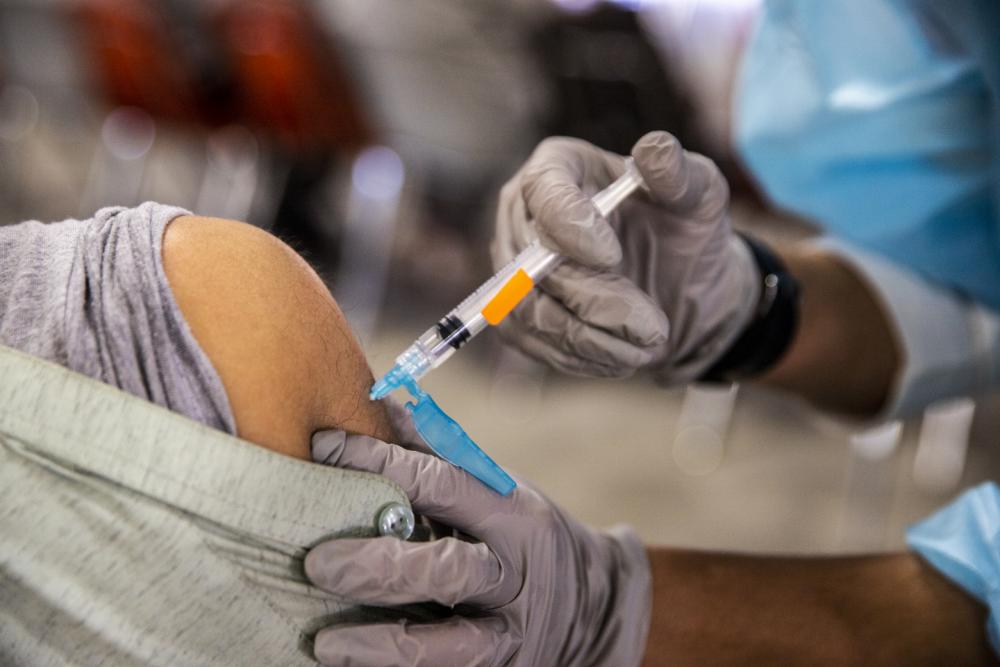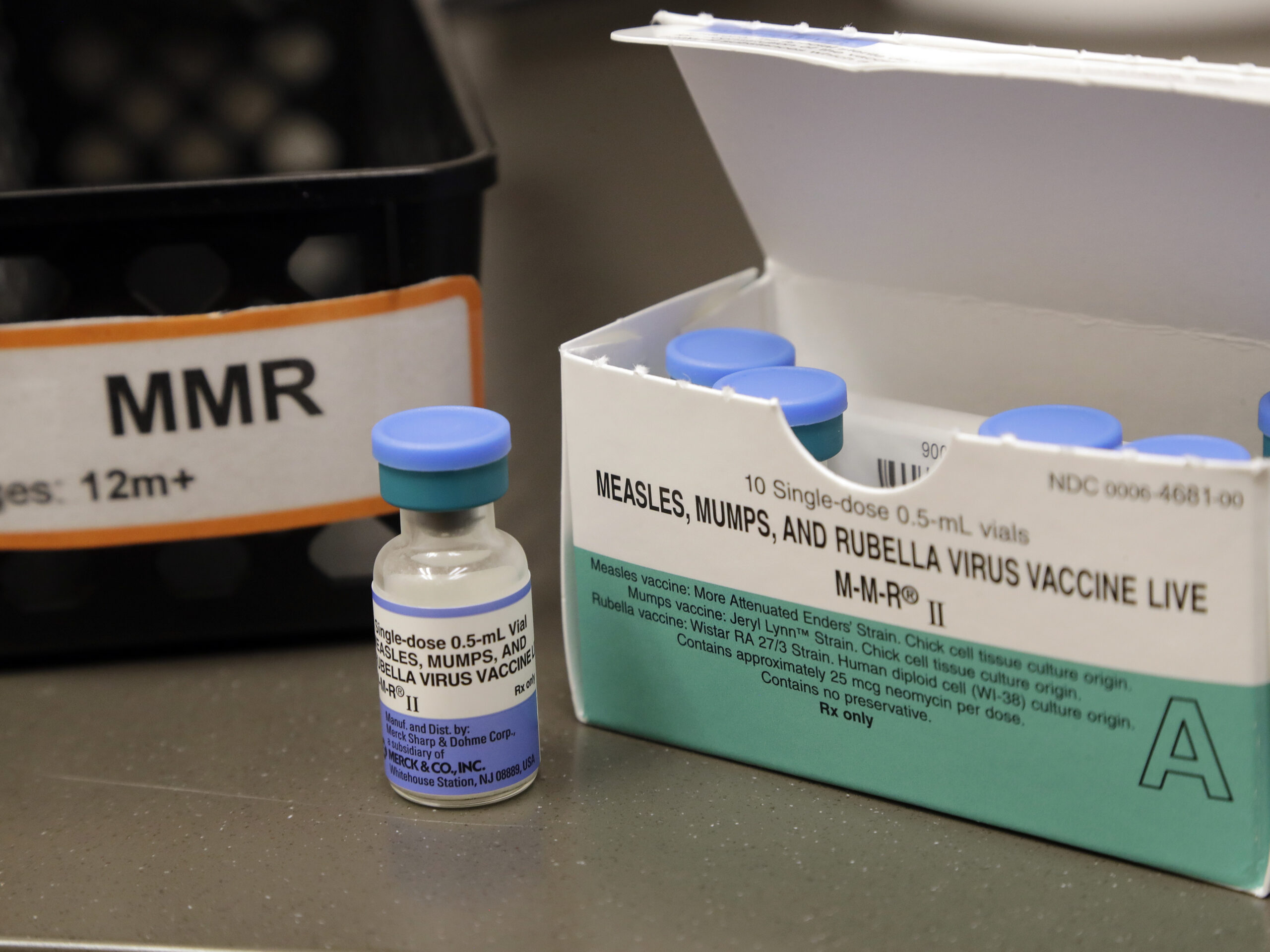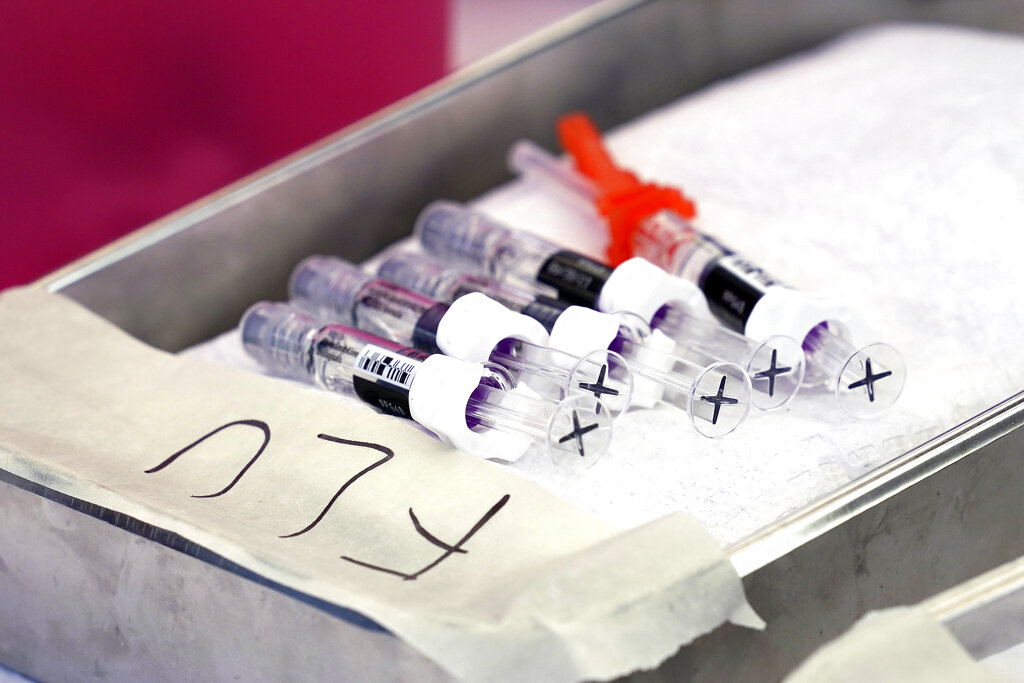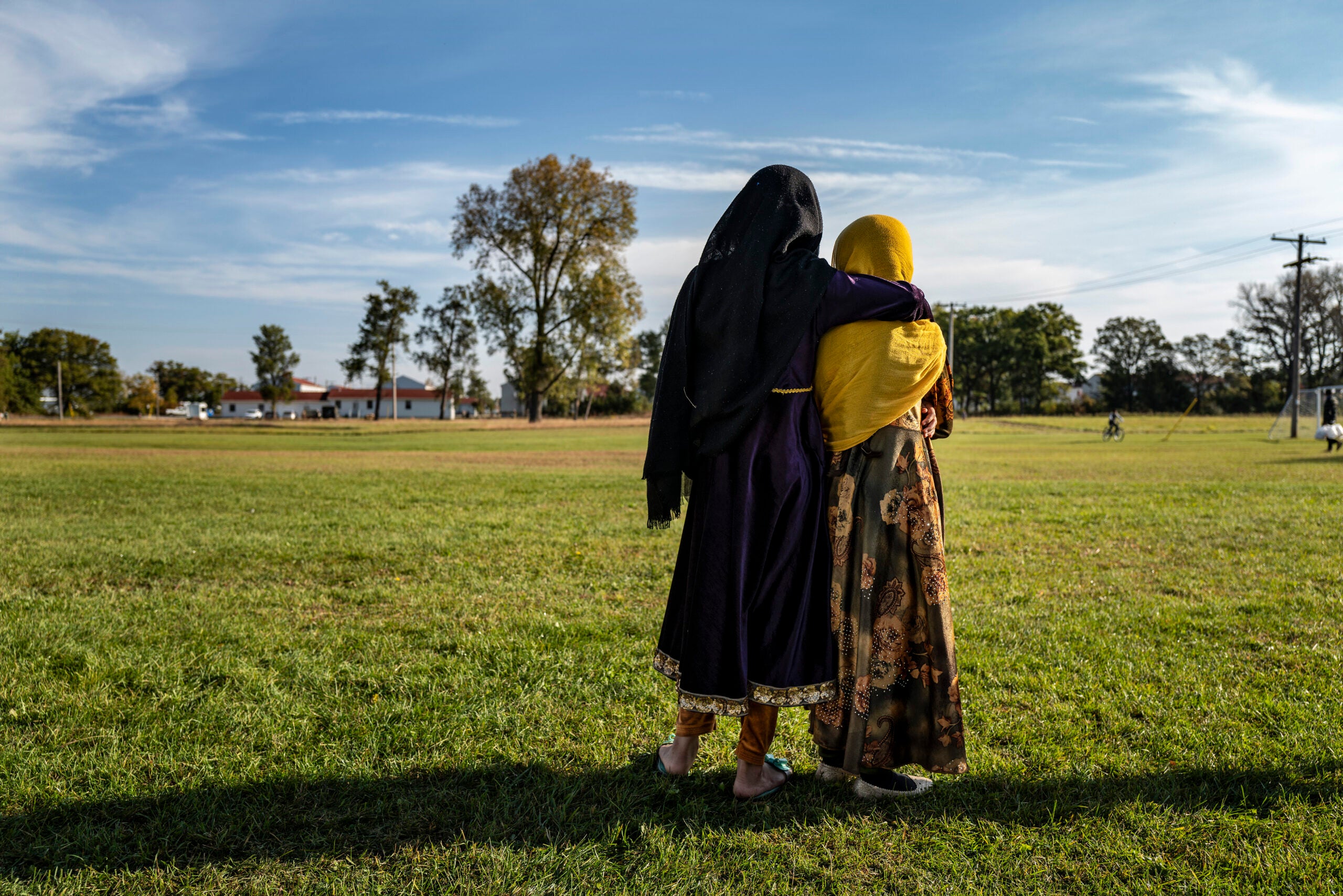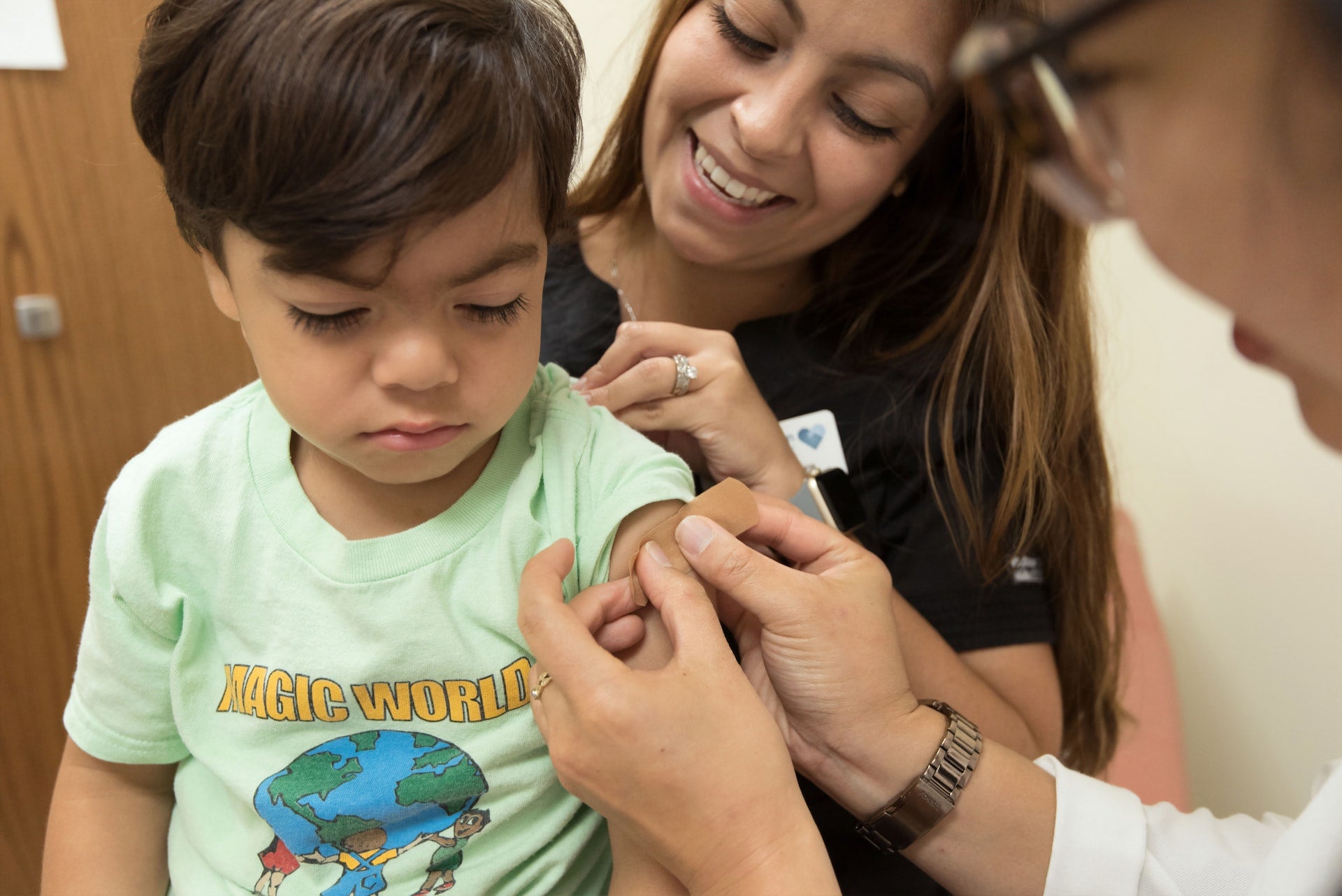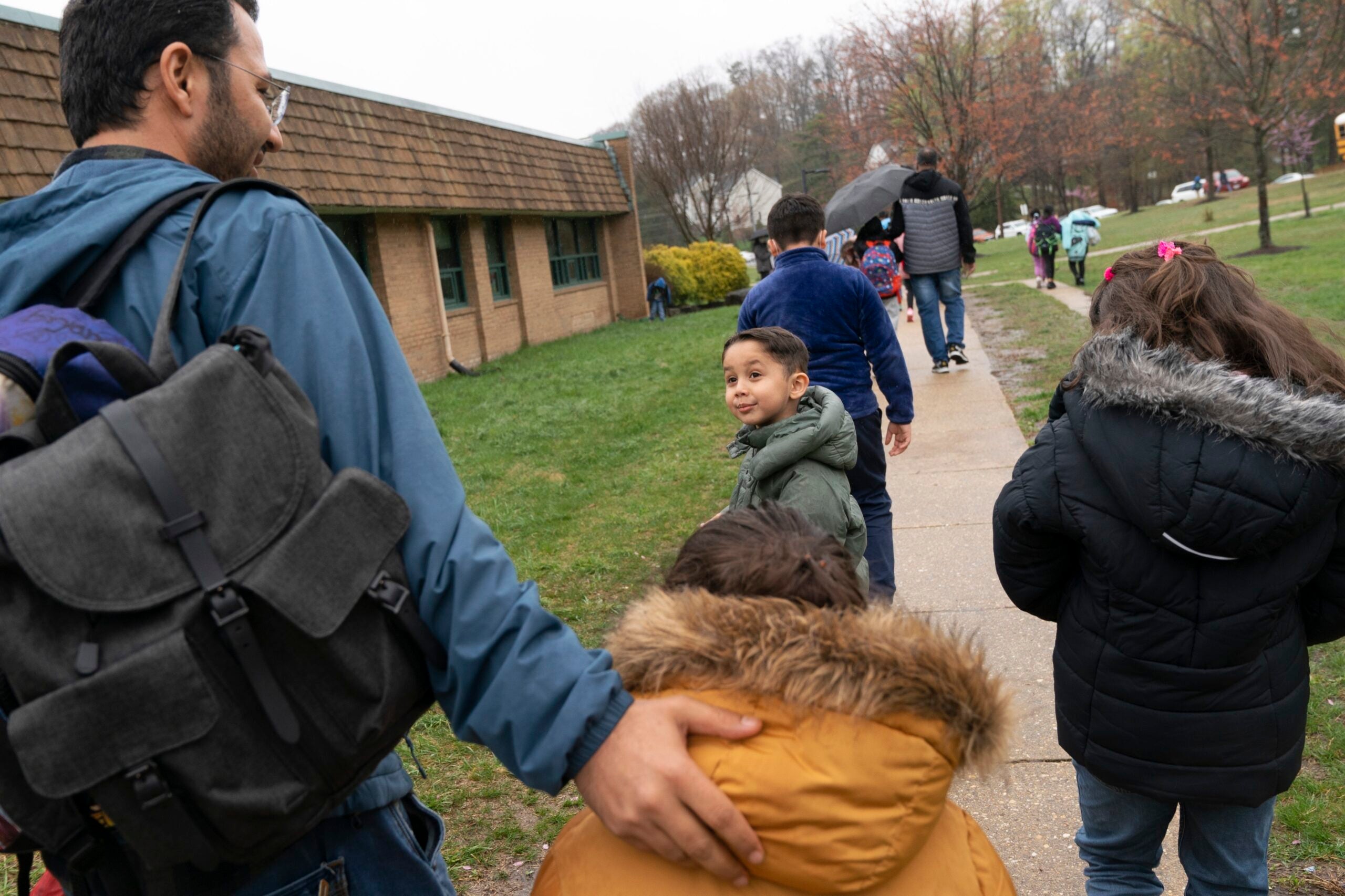Three weeks after officials finished a mass vaccination campaign, one local doctor says the threat of a continued measles outbreak among Afghan evacuees at Fort McCoy has been reduced “exponentially”.
Fort McCoy has seen a total of 22 cases of measles in both adults and children since the start of September. There are around 12,600 evacuees from Afghanistan currently living at the base while they wait to be resettled.
Task Force McCoy Medical Commander Col. Matthew Fandre said in an emailed statement that there were no active cases as of Friday.
Stay informed on the latest news
Sign up for WPR’s email newsletter.
Forty-five people were still in quarantine to “minimize any risk to others prior to the vaccine reaching full effectiveness”, according to Fandre.
He said 99 percent of the evacuees at the base are now vaccinated against the highly-contagious virus. Most of those shots happened during a mass vaccination campaign between September 16 and September 21.
Measles is one of the diseases immigrants are required to be vaccinated against in order to enter the U.S. Cases of the disease were also found at several U.S. military bases housing evacuees from Afghanistan in September, causing federal officials to pause flights from overseas bases last month.
Fandre said that Afghan guests who have not received the vaccine were either too young or had a medical condition to make them ineligible, such as being pregnant.
He said some of the measles cases at Fort McCoy were discovered after the vaccination campaign took place.
“However, it was determined that the measles cases discovered after the mass vaccine campaign were not due to exposure from the first cases at Fort McCoy,” Fandre said in the email.
Dr. Chris Eberlein from Gundersen Health System in La Crosse is one of several local providers who has been helping to provide medical care to evacuees, including several measles patients.
He said the virus has a 10 to 12 day incubation period before someone will start displaying symptoms, including fever, cough, runny nose and a distinctive rash. Patients are contagious for about two weeks, including four days before they develop the rash and four days after it’s gone.
Eberlein said that incubation period is likely why cases were discovered after the vaccines were given.
“Measles is incredibly contagious. If you expose 10 people to measles, nine of them will get it,” Eberlein said. “It’s not surprising to get a spike after one or two cases are found, especially when they were living in such close proximity.”
Eberlein said measles is a common virus in many countries outside the U.S. and he would have been surprised if there weren’t any cases among the thousands of Afghans staying at the base.
“In a lot of areas of the world, it’s a very normal childhood disease. And then by the time you get into adulthood you’ve had measles, similar to what chicken pox used to be here,” Eberlein said.
He said that natural immunity in adults combined with federal officials’ expediency in vaccinating the population likely helped prevent a larger outbreak from happening.
The state Department of Health Services said in a health alert that the measles patients at the base ranged in age from four months to 26 years old, with the median age of patients at 3 years old. Fourteen patients, or 64 percent of the cases, required treatment at a local hospital.
State health officials said risk of measles transmission in the general community is “considered to be low at this time”. But officials encouraged health care providers to be “vigilant” for patients with measles symptoms and report any suspected cases to their local health department.
Eberlein agrees that there is little risk of wider community spread, thanks to the high rates of vaccination in the general public and the vaccine’s 90 percent efficacy. And he doesn’t expect many more cases among the Afghan evacuees either, now that the three-week period for the vaccine to become fully effective has passed.
“The risk has been diminished exponentially at this point. You may get one or two more cases, but I would not expect an outbreak,” Eberlein said.
Wisconsin Public Radio, © Copyright 2024, Board of Regents of the University of Wisconsin System and Wisconsin Educational Communications Board.

